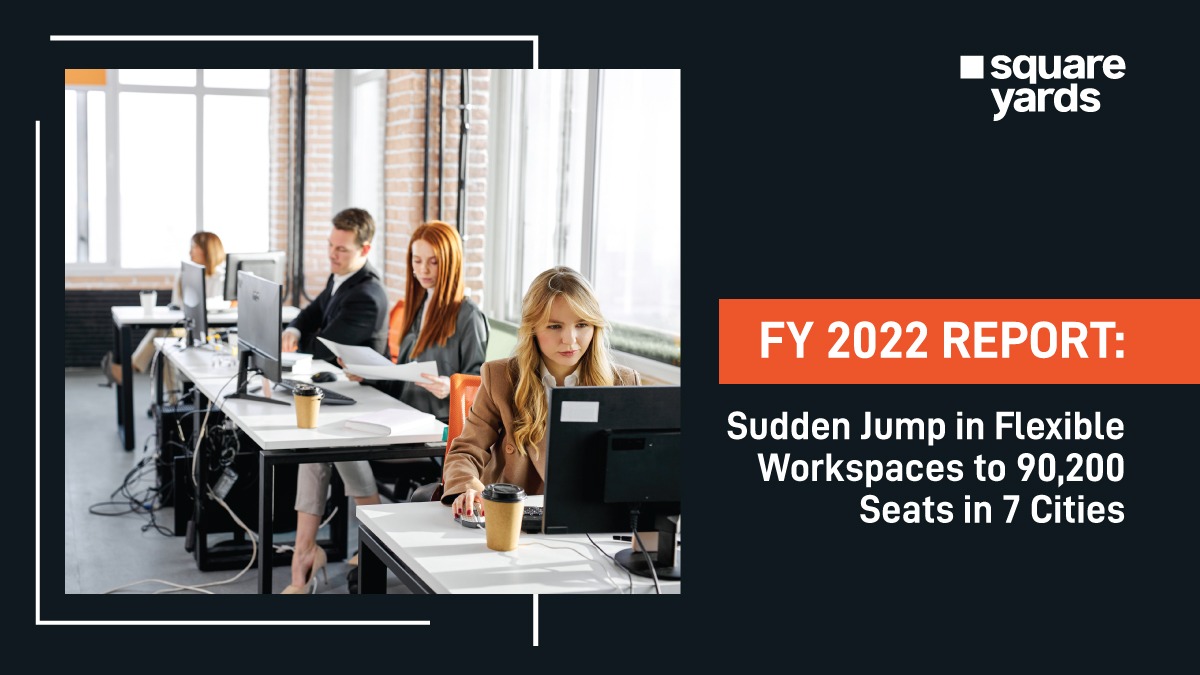Earlier, employees were seen working for longer hours and used to wear the baggage of working overtime as a pride. But now, the trend has changed with the workers following the path of finding the balance between personal and professional aspects. In this regard, the report of JLL India and Qdesq has released a report recently that shows twice the hike in the flexible workspace market. In the fiscal year 2022, the Covid-19 pandemic has become the revolutionary cause of the rise in such a pattern that now counts to 90,200.
Especially in the second wave of the pandemic, work from home and hybrid work culture instigated this new phenomenon of the flexible workspace options that is currently blooming in seven major cities in India. In the session year 2020-21, over 37,300 seats were leased out because of which in all the 7 cities where Hyderabad with 8,284, Pune with 15,659, Kolkata with 2,432, Chennai with 11,312, Delhi NCR with 15,659, Bengaluru with 25,130 and Mumbai with 14,900 were having a flexible seat increment dominatingly.
In this regard, the “India’s Office Market Recalibrating with Flex”, a real estate consultant JLL India and co-working marketplace Qdesq, criticised the growing demand for co-working space under multiple umbrellas. Some of the concerns were the liberty of corporates and other occupiers to expand their workspaces or book as per the contract according to their demands and preferences. Looking at the fluctuating tenure of the in-office working trend, the shorter lease period, amenity-oriented workspaces and fully maintained ambience also became part of the judgement.
Previous the year 2021-22, the rate of flexible seats leased out was 52%. Gradually, the percentage increased, and the cumulative flexible workspace companies leased was at the rate of 62, which was prominently managed offices. As per the report,” An increasing number of enterprises are expanding their usage of co-working space in concern with transformational changes with respect to flexibility, mobility and remote working”.
Here, Delhi NCR, Pune, and Bengaluru count 60% of the total seats leased out for shared workspace companies and others covered the rest of the flexible seats leased in the Fiscal Year 2021-22. This, in total, accounted to be more than half of all with a significant-sizes transaction of 300 plus seats. The rate at which these flexible seats are offered is to fall between the bracket of Rs. 6,300 – Rs. 14,300 monthly.
see also – Why is Gurgaon Leading the List of Increasing Housing Prices?
Although, the elite price of these flex spaces is in prime business in metropolitan cities such as Delhi and Mumbai, ranging from Rs. 50,000 monthly for a single seat. Whereas, some may also offer at Rs. 25,000 to Rs. 45,000 monthly for a single seat for marquee workplaces. Besides this, the other few cities falling in Tier-II offer flexible seats at Rs. 4,000 to 6,000/month. Noticeably, the same charges can also be found in metro cities mentioned above but in peripheral locations.
As per the information provided in the research, the Tier I and II cities have 3,000 shared office services. Of this, 2,300 commercial centres are active in major 7 cities with small, medium and large enterprises. These centres can be categorised into different types: mom-and-pop working spaces, fitted-out spaces and even the unorganised players that grant the space for office purposes. In such a structure, the IT hub Bengaluru rules the queue, followed by Mumbai, Delhi and Pune.
In the top 7 designated cities, 49% of the operative commercial spaces are medium and large-sized spaces with three branches of their centres and a current total footprint of 10,000 square feet plus. In this configuration, the prominent 10 flexible workspace options that are functional in Tier I cities as per the footprints, actionable over 380 shared office spaces thoroughly.
Talking about the Tier II cities like Kanpur, Raipur, Goa, Bhopal, Kochi, Visakhapatnam, Chandigarh, Indore, Ahmedabad, Patna, Jaipur and Lucknow, a total of 650 co-working spaces.






















